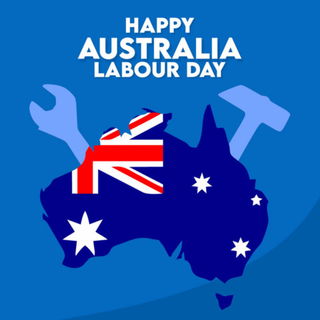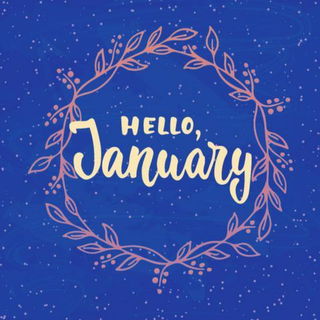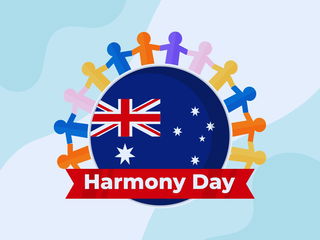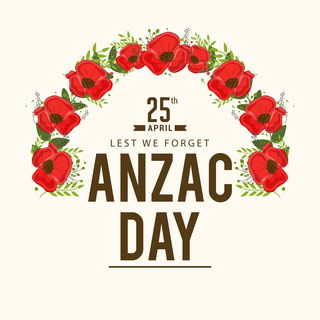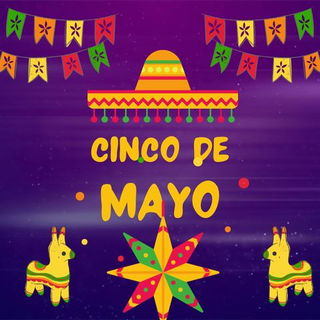- Calendar
- Calendar 2026
- January
- Holiday Australia Day
Australia Day
Holiday
Australia Day, celebrated every year on January 26th is a day of national pride and celebration that honours the rich culture, the diverse history and the achievements of the nation.
Australia Day is the anniversary of the arrival of the First Fleet in 1788 that marked the beginning of modern Australia.
Australians come together on this and look back at their journey as a nation and acknowledge the contributions of Indigenous people.
It is a national holiday and businesses and schools remain closed on this day.
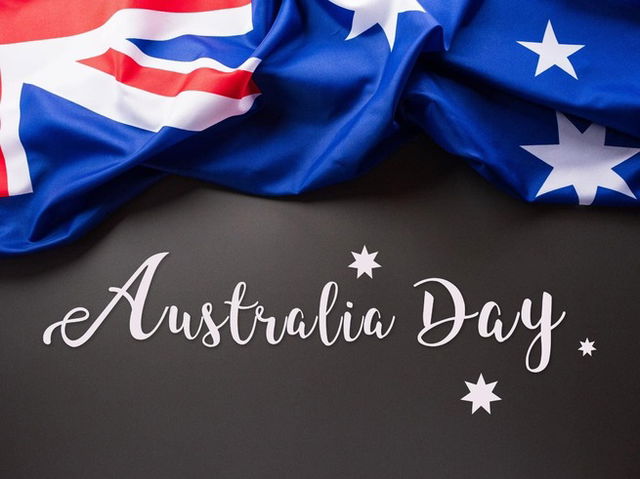
Australia Day History
The First Fleet
The first fleet was a group of 11 ships that arrived to New Holland from England, sent by the British Admiralty.
On May 13, 1787, the fleet left, under Captain Arthur Philip's command. Their mission was to establish a penal colony in Botany Bay in New South Wales, a Britain lost its American colonies.
Lieutenant James Cook explored and claimed this land in 1770 but when the fleet arrived between January 18-10 in 1788, Botany Bay looked unsuitable to establish a new settlement.
Moving to Sydney Cove
Captain Philip along with some offices headed north to explore Port Jackson on January 21 about a distance of 12 kilometres.
They found a better spot for settlement and named it Sydney Cove after Lord Sydney, the British official.
They returned to Botany Bay on January 23 and decided to move the fleet to Sydney Cove the next day.
Unfortunately, they were met with a bad weather which delayed their departures till January 25 and during this time, two French ships were spotted, Astrolabe and Boussole, struggling to enter Botany Bay.
These ships were led by French explorer Jean-François de La Pérouse.
Ultimately, only one ship, HMS Supply, was able to leave Botany Bay, carrying Captain Philip and some convicts to Sydney Cove.
The rest of the crew made it through the rough weather and anchored at Sydney Cove by January 26.
That afternoon, Captain Phillip raised the British flag, marking the beginning of the settlement.
Official Establishment of the Colony
While January 26 is often regarded as the founding date of the colony, the official establishment of New South Wales took place on February 7, 1788. On that day, Captain Phillip was proclaimed as governor, and all land was officially claimed by King George III.
The Origins Of Australia Day Celebrations
The earliest known celebrations of Australia Day goes back to 1808, and it was very informal with social gatherings and drinks.
The 30th anniversary of the colony was officially recognised by Governor Lachlan Macquarie. He announced a public holiday for government works and started the tradition of honouring the day with a 30-gun salute.
The 50th anniversary was the beginning of the first official public holiday that held events like the Sydney Regatta in 1838 which became an annual tradition.
January 26 slowly started to be recognised beyond New South Wales, and other colonies adopted the day to celebrate their respective identities.
All Australian states and territories started observing January 26 as Australia Day by 1935.
After World War 1, the day gained national significance with several events and raising funds for soldiers.
In 1938, on the 150th anniversary of British settlement, Australia held major celebrations.
Despite this, it was also a turning point for Indigenous Australians, who protested the day as a “Day of Mourning,” highlighting the suffering caused by colonisation.
Australia Day became more widely accepted after World War II, with large celebrations marking milestones like the 200th anniversary in 1988. However, the day has remained controversial for many Indigenous Australians, who see it as a reminder of their displacement and loss.
Today, Australia Day is a time for both celebration and reflection, with many calling for a change of date to create a more inclusive national holiday that recognises all aspects of Australia’s history.
Invasion Day
Australia Day, celebrated on the date when Arthur Phillip raised the British flag at Sydney Cove in 1788, is known by many Indigenous communities as Invasion Day or Survival Day.
This term reflects the painful history of colonisation, which led to the loss of Indigenous lands, culture, and lives. For Indigenous Australians, it represents the beginning of their dispossession and suffering under British rule.
Invasion Day has become a time for protests and reflection, with call for recognition of this dark chapter in Australia's history and advocating for a change in the date of the national holiday to create a more inclusive celebration.
Traditional Australia Day Celebrations
Traditional celebration of Australia Day includes activities representing the country's history and culture.
Communities across the nation hold events like parades, carnivals, and concerts that bring people together to celebrate the national heritage.
Citizenship ceremonies are an important part of the day when they officially welcome new Australians.
Barbecues are a key part of the tradition with friends and families gathering outdoors to enjoy lamb, burger, sausages while adoring the fireworks.
Flag-raising ceremonies, often paired with the national anthem, are a key feature of Australia Day, representing the country’s unity and pride. Sports also play a significant role, with cricket matches, yacht races, and beach activities being popular ways for people to enjoy the day.
In recent years, Australia Day has increasingly become a moment to recognise the history and culture of Indigenous Australians. Many events now include ceremonies and speeches that reflect on the impact of colonisation and honour the contributions of Indigenous communities. This growing focus on reflection has led to discussions about the future of Australia Day, with some calling for changes in how the day is celebrated.
Timeline of Key Events Related to Australia Day
Lieutenant James Cook explores and claims the eastern coast of New Holland (Australia) for Britain.
The First Fleet, consisting of 11 ships, departs from England under the command of Captain Arthur Phillip to establish a penal colony in Botany Bay, New South Wales.
The First Fleet arrives at Botany Bay but finds it unsuitable for settlement.
Captain Phillip explores Port Jackson, discovers a better site, and names it Sydney Cove, after Lord Sydney.
Captain Phillip decides to move the fleet to Sydney Cove, but bad weather delays the departure.
HMS Supply departs for Sydney Cove with Captain Phillip and some convicts, while the rest of the fleet remains in Botany Bay.
The British flag is raised at Sydney Cove, marking the beginning of British settlement in Australia.
The colony of New South Wales is officially established, and Captain Phillip is proclaimed governor.
The earliest known informal celebrations of Australia Day take place with social gatherings and drinks.
Governor Lachlan Macquarie declares a public holiday for the 30th anniversary of the colony and marks the occasion with a 30-gun salute.
The 50th anniversary sees the first official public holiday for Australia Day, including the Sydney Regatta, which becomes an annual tradition.
All Australian states and territories begin observing January 26 as Australia Day.
The 150th anniversary of British settlement is marked by major celebrations, but Indigenous Australians protest the day as a “Day of Mourning.”
Large nationwide celebrations take place for the 200th anniversary, but the day remains controversial due to its impact on Indigenous communities.
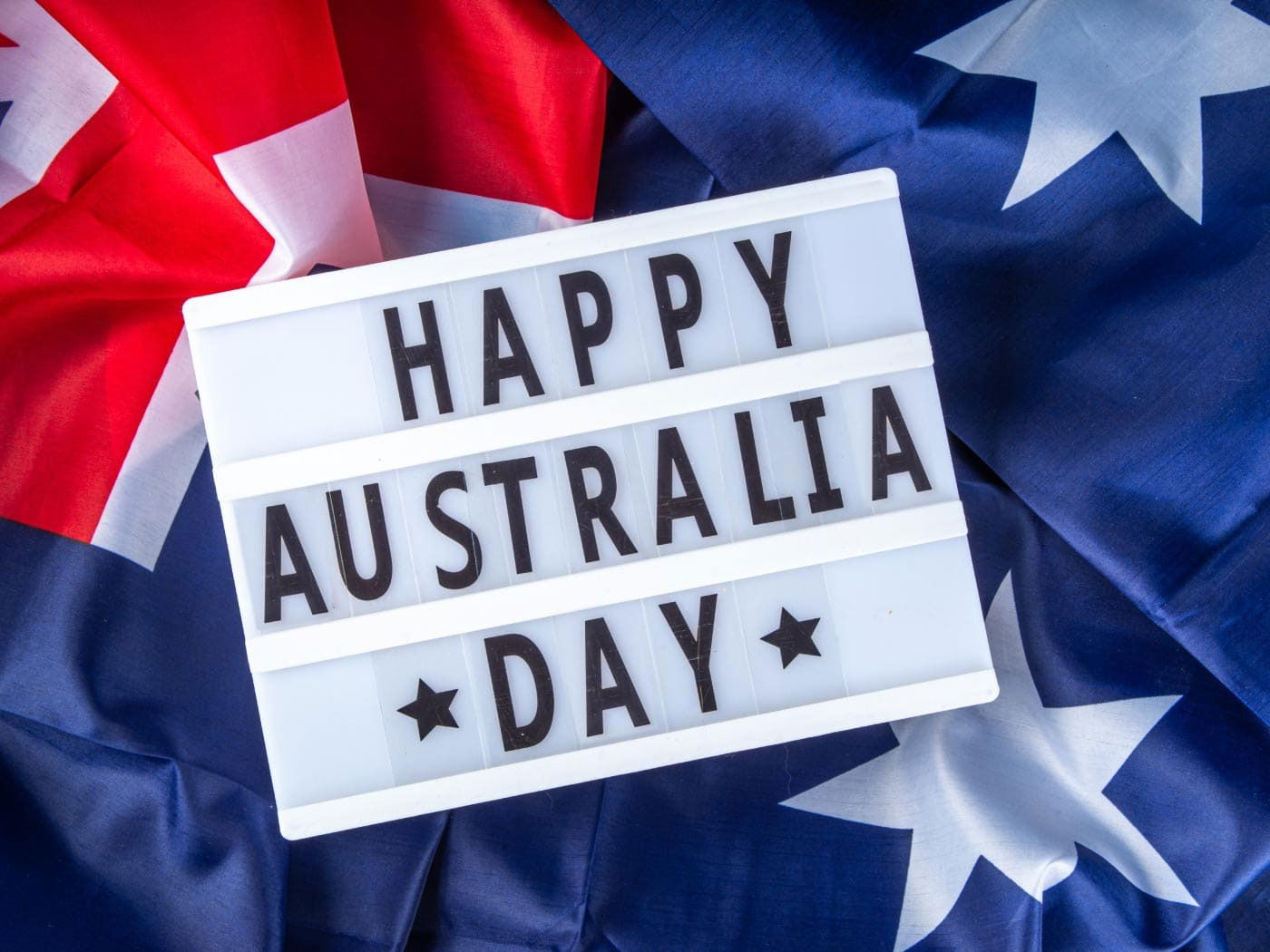
Other Celebrations
-
May 11 Sun
-
Jun 02 MonWestern Australia Day Holiday
-
Sep 07 Sun
-
Oct 26 Sun
-
Nov 26 Wed
-
Mar 01 Sun

Australia Day - Next years
Tuesday, 26 January 2027
Wednesday, 26 January 2028
Friday, 26 January 2029
2025 Calendars
You might also be interested in
